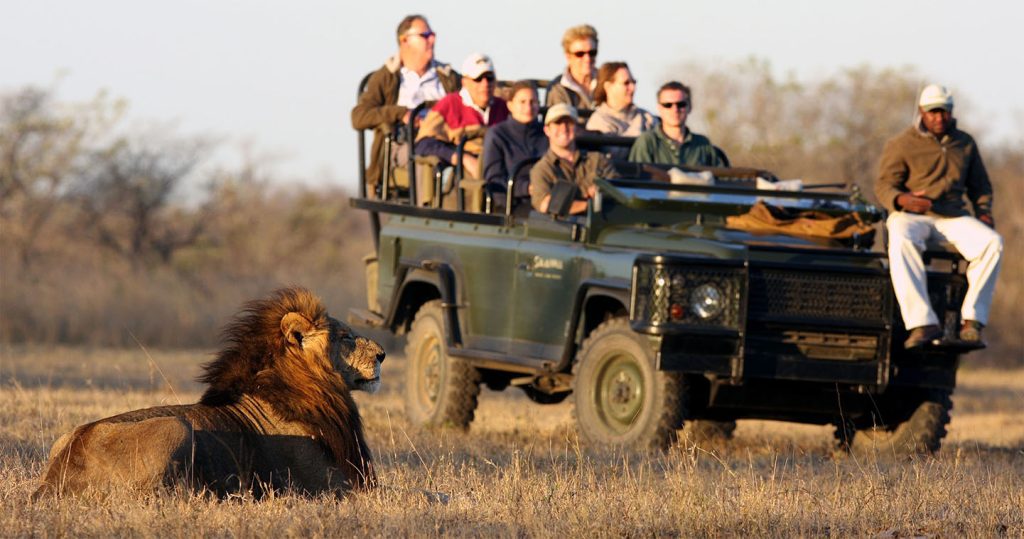
What is FAQ?
A frequently asked questions list is often used in articles, websites, email lists, and online forums where common questions tend to recur, for example through posts or queries by new users related to common knowledge gaps.
Below you will find answers to frequently asked questions. For even more information, have a look at the More Info section for details about your specific tour or travel option.
FAQ Questions: A-Z
(A)Why should I book with Xavier safaris?
- Xavier Safari staff has done and lead most of the tours/ treks/ guiding and hikes ourselves and we know you will benefit from our personal experience and in-depth knowledge.
- prices – without compromising on high standards, you will get what you paid for.
- Xavier Safari supports and donates a percentage of our profits to non profit organizations, like indivial education sector, rural health clinics, hospitals, job creation among the youth and rural communities wellbeing, which are trying to make the world a better place… so indirectly you will also help some less fortunate people, the environment and your money will help with nature and wildlife conservation.
- We have carefully selected some of the most popular Group Safaris, 4×4 Safaris, Treks and climbs and offer them at by far the best.
- some of xavier safari funded community projects below


(B) Is it safe to book with Xavier Safaris?
Yes. Xavier Safaris is registered with Uganda Registration Services Bureau Number 80020001206140. Xavier Safari was founded in January 2004. Xavier Safari, only the best, registered and insured operator in Africa to ensure your Safari goes as planned.
- Xavier Safari provides a guarantee to tourists/ clients who have booked a Safari with us.
(C) Is a safari jeep safari safe? Do animals attack safari vehicles?
It is common for animals to come quite close to the safari vehicles without taking any interest in them. Why? Xavier Byarugaba, a Safari guide working with Xavier Safaris in Africa says the animals are used to the sight and smell of the vehicles. “They see the jeep as a single item and don’t smell the people in it as a separate item. That’s why it’s important for travelers to stay within the vehicle, because if they move their bodies outside the shape of the jeep, the animals may recognize something new about them and decide to investigate.” Xavier says this is particularly pertinent when watching a kill, as the lions are in hunting mode. You don’t want to become their new target!
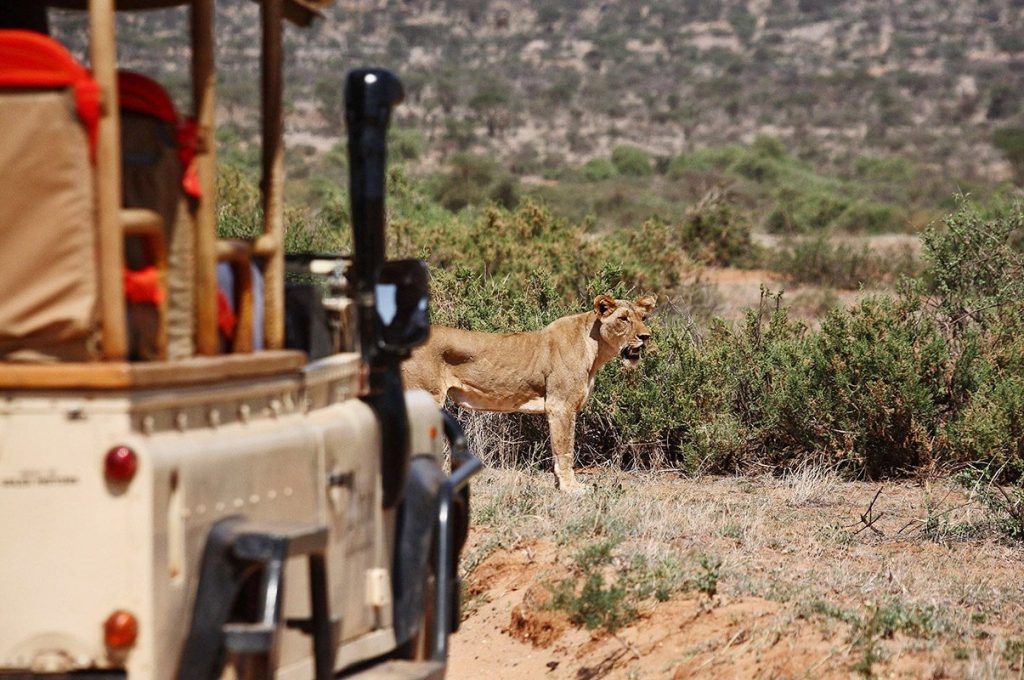
(D): What happens if the vehicle breaks down?
If you are taking a self-drive safari, be sure to enquire about emergency protocol and rescue procedures at the game reserve before heading off. If you break down, remain in your vehicle at all times. Call the emergency number or wait for a passing vehicle if you have no phone. Always inform the reserve of your plans before leaving and always stay on the marked paths to avoid danger and to be easily spotted by rescue teams.
If you are on a guided game drive, your guide will be well-trained in vehicle breakdown procedures. Stay calm and let your guides handle the situation. Xavier Byarugaba, aka Xavier Safaris in Africa has experienced vehicle breakdowns on a few safaris. “The jeep broke down with a pride of lions quite close by – adrenaline extreme!” While it was a heart stopping experience Xavier says he and his driver guide expertly managed the situation and they all returned to camp safely
.
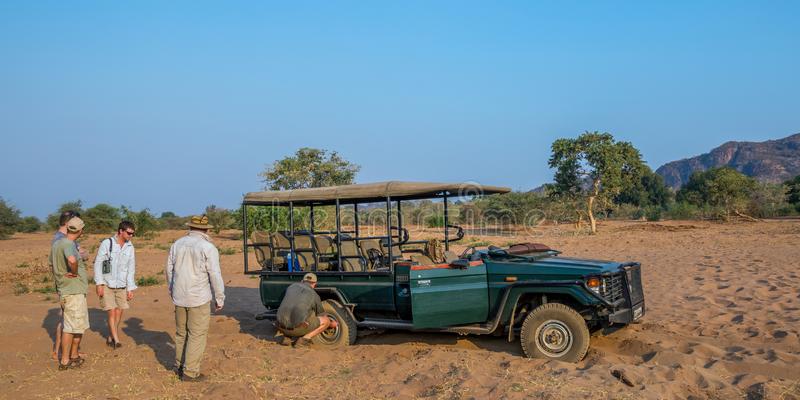
(E) Are walking safaris safe?
As with all safaris and wildlife experiences, walking safaris come with risks. The expert guides go through rigorous training and their chief priority is your safety. You can heavily reduce your risk of danger simply by listening to your guide’s instructions at all times. However, animals are unpredictable and things can go wrong, so here are a few extra safari safety tips to follow.
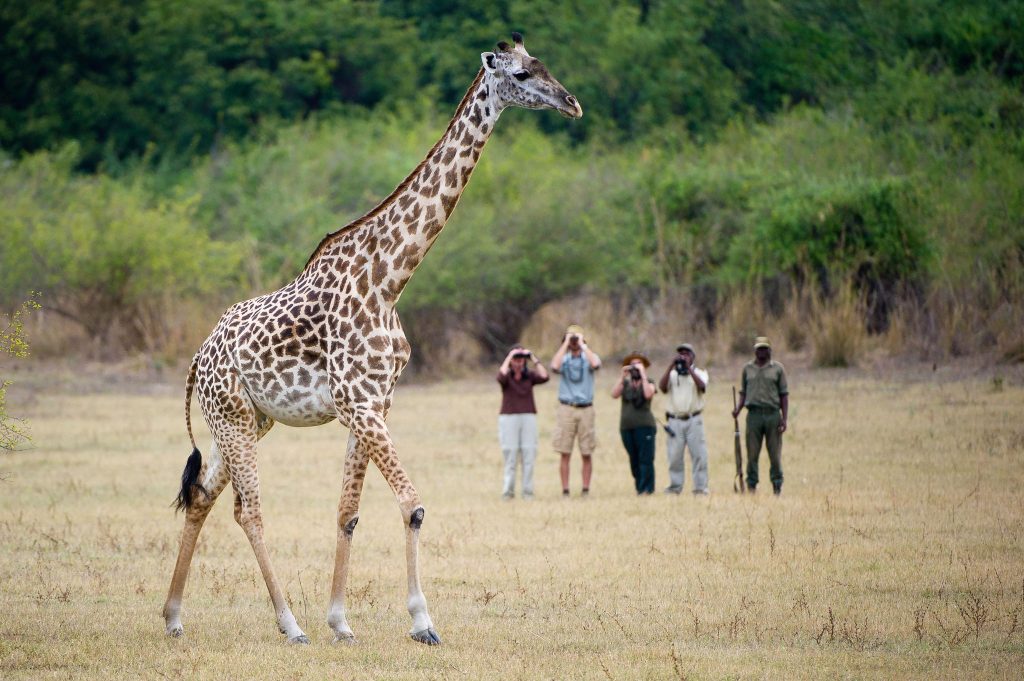
(F) Stay down wind from the animal
It’s important to stay downwind so the animal doesn’t catch your scent. Your guide will instruct you on the best route to walk to ensure you stay downwind.
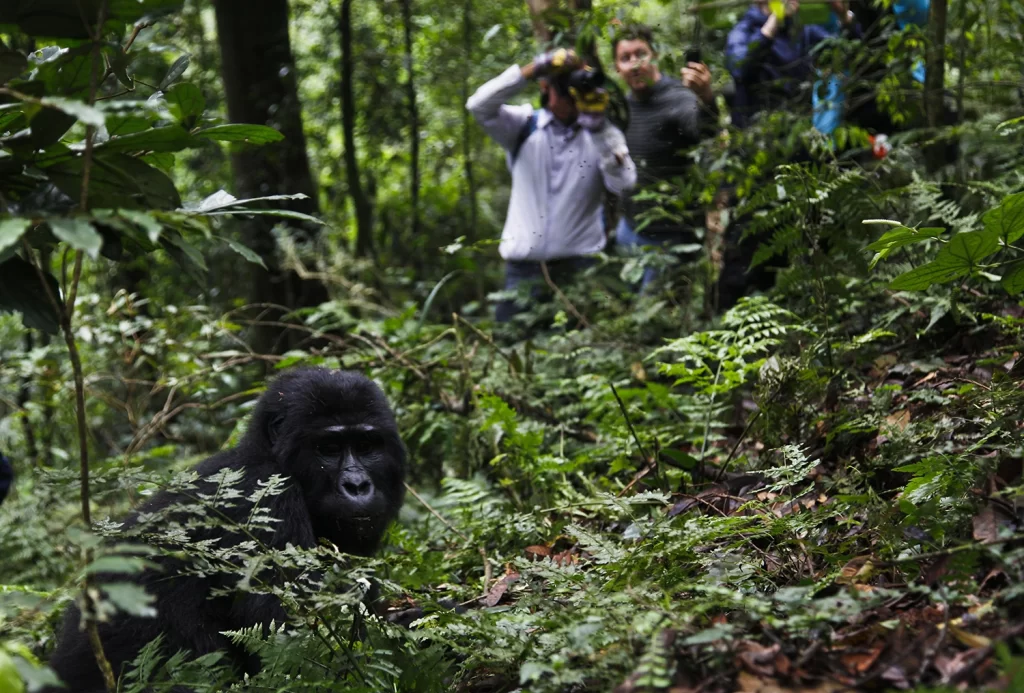
(G) What should I do if I approach a wild animal?
If you are approached by a hostile animal, give it a wide berth and check you aren’t blocking its escape route. Move away slowly, but never turn your back on an animal and never run away, as these movements will aggravate the animal.
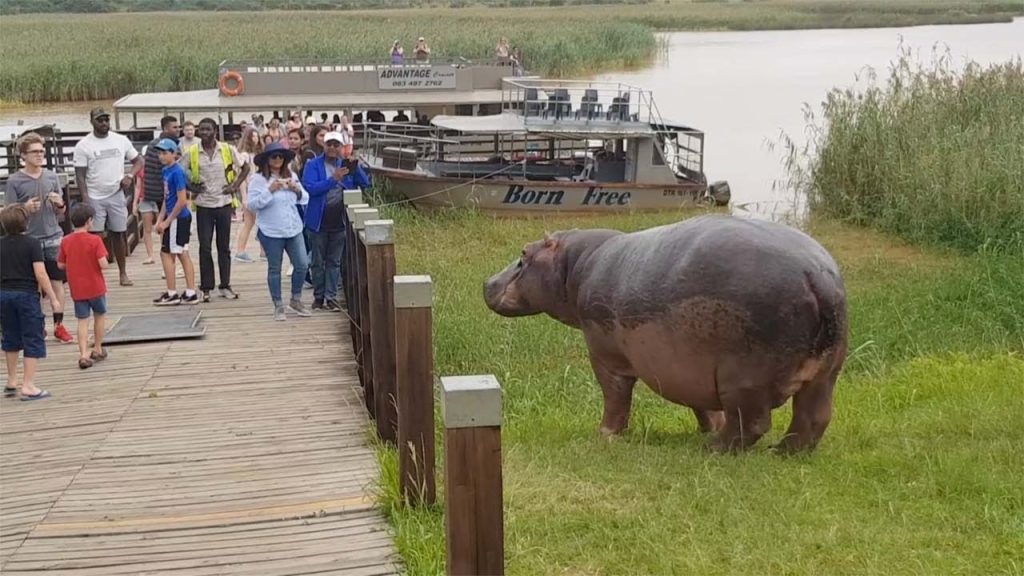
If you do come close to an agitated animal, always listen to your guide for the safest course of action.
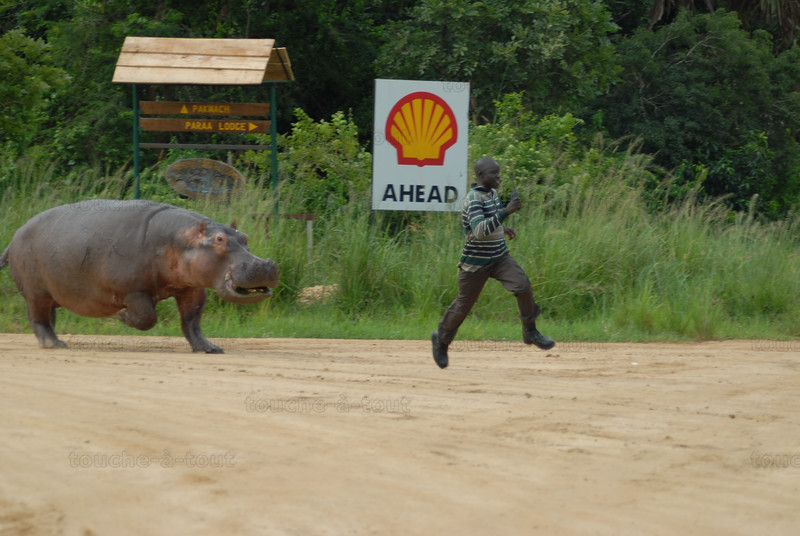
(H)Are we supposed to Walk in a single file during a nature walk?
The best way for your walking safari to move about is in a single file about an arm’s length from each other. This way, animals will see you as one unit rather than a herd that can be split up.
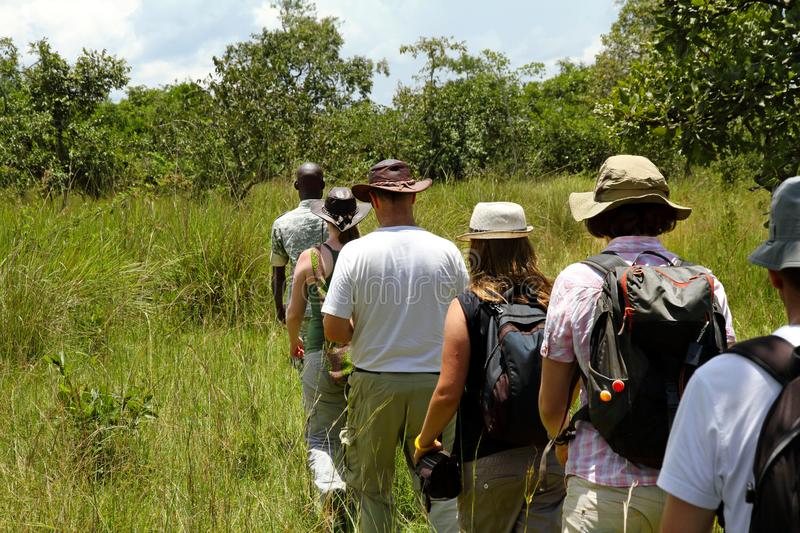 Tourists walking in a straight line
Tourists walking in a straight line
during a bush walk
at Hangwe National Park
Zimbabwe2011
It also means that the armed guides up front will have walked the track before you, protecting you from any danger lurking along the path.
Whether it’s your first or tenth time on an African safari, there is a general safari etiquette to follow. It’s important to be respectful of your guides and fellow travelers so everyone can have an unforgettable safari experience. Brush up on these safari rules and etiquette tips before venturing into the bush.
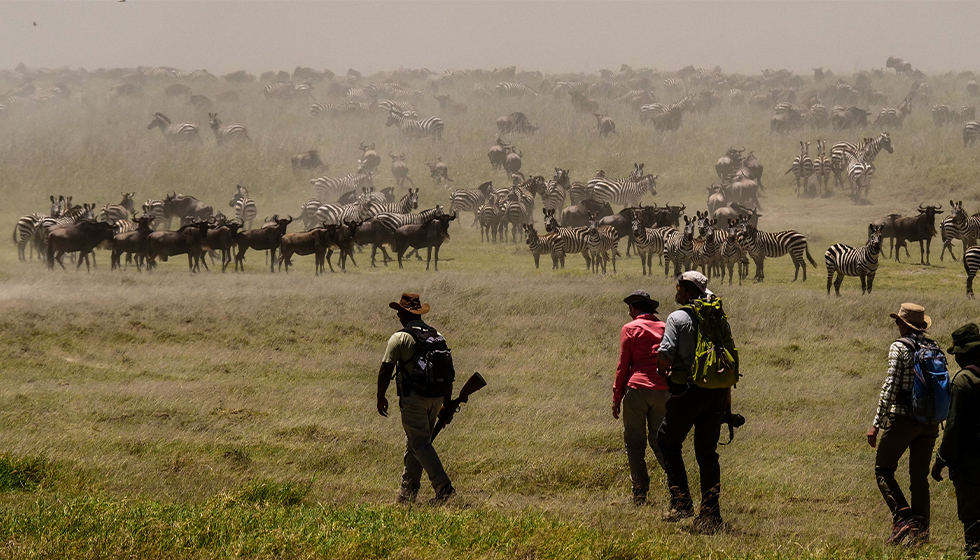
the great migration in
Serengeti National Park
Tanzania 2016.
(I)How can I Manage bucket list expectations?
Your safari guides want you to see the best wildlife but there’s no guarantee you’ll spot everything during your entire safari. Animals are unpredictable and often like to remain hidden as they roam freely around the massive wild game parks.
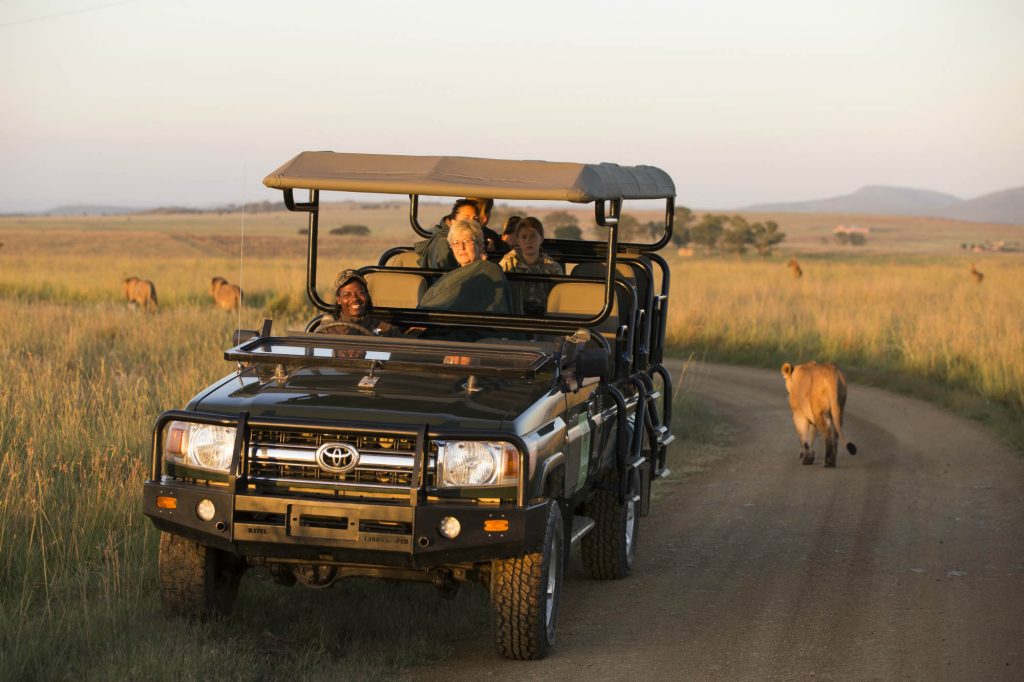
For many people, African safaris are a once-in-a-lifetime experience and they travel a long way with high expectations. It’s unlikely that you’ll spot the Big Five on your first game drive, so try not to be disappointed and don’t get frustrated with your guide if it’s not possible to find every animal you want to see.
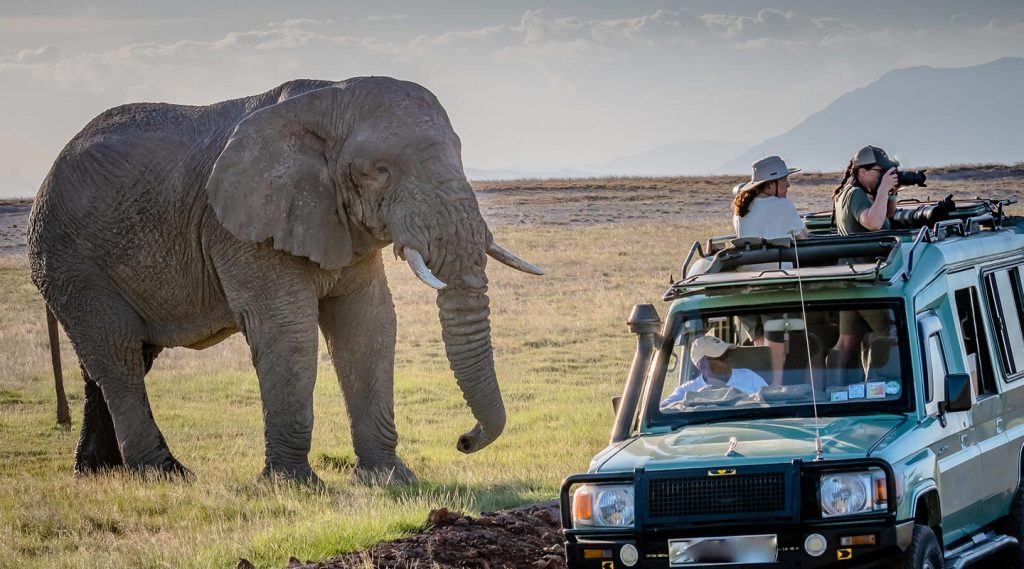
(J)Visa to Uganda link
https://www.bestholidaysadvisor.com/travel/plan.php?dest=uganda
(K)How long does it take to get Uganda E-visa?
How long does it take to get a Uganda e-Visa? All types of Uganda e-Visa are typically processed within 7 working days. In many cases, applicants receive their visa even sooner. That said, it is advisable to apply at least a week before the date of travel.
(L)Does a US citizen need a visa for Uganda?
Do Americans Need a Visa to Travel to Uganda? Yes, US passport holders must have a valid visa for Uganda to enter the country. Americans traveling to Uganda on vacation or for other short-term stays can apply online.
(M)Can you get a visa at Entebbe Airport?
Except for the citizens of visa-exempt countries, all travelers need a Uganda visa to cross the border. While there are multiple ways of getting a visa for Uganda, online or at an embassy, one thing that you need to know for sure is that Uganda visas are no longer obtainable at the Entebbe International Airport. You have to apply online.
(N)Can I get a visa upon arrival in Uganda?
Ugandan immigration laws state that visa on arrival required citizens must go directly to a border checkpoint upon arrival in the country, to wait in a queue to be handed an application by an immigration officer.
(O)How do I get a tourist visa for Uganda?
All persons intending to travel to Uganda for holiday, tourism, business, study, visit, and/or medical are required to apply and obtain a visa online. Applications should be filled at the following link: https://visas.immigration.go.ug/.
(P)How do I pay for my visa?
Fees may be paid in cash – dollars or sterling equivalent, by Credit Card – Visa, MasterCard, Diners Club, Discover or American Express or Debit Card – Visa. The Embassy does not accept any other credit or debit cards, or personal checks.
(Q)Does a British citizen need a visa for Uganda?
Do British citizen Need a Visa to Visit Uganda? Yes, passengers traveling to Uganda with a UK passport must have a valid visa to enter the country. When going to Uganda on holiday or for other short-term visits, British nationals can use a Uganda electronic visa (e-Visa).
(R)Do I need a return flight to enter Uganda?
(S) Is yellow fever vaccination required for Uganda?
(T)Who can enter Uganda without visa?
-
Angola.
-
Botswana.
-
Ireland.
-
South Sudan.
-
Eritrea.
-
Malawi.
-
Malaysia.
-
Madagascar.
(U) What documents do I need for Uganda visa?
(V) How long can you stay in Uganda on a tourist visa?
The Uganda Tourist e-Visa is valid for 90 days after issued. The length of stay is 45 days in Total, and it is valid for one Single Entry. The applicant must be outside the Republic of Uganda at the time of application. The applicant must not have any other current Uganda visa.
(W) Can I get visa on arrival in Uganda?
(X) Do I need malaria tablets for Uganda?
Malaria risk is high throughout the year in all areas including in the main towns and cities. High risk areas: atovaquone/proguanil OR doxycycline OR mefloquine is usually advised.
Can I apply for visa at Entebbe International airport?
(Y) Can i drink Tap water in Uganda?
No. the water straight from the taps in Uganda is not clean so we would advise you drink bottled water at all times. This includes ice in your drinks, and the water you use to brush your teeth. Bottled water will be provided in lodges and on safaris for your consumption.
(Z) What activities are there, aside from gorilla tracking?
There are many things to see and do in this outstanding destination, aside from tracking the mountain gorillas.
Tracking the mountain gorillas is a huge highlight of Uganda and we would never recommend you go there and miss the opportunity. However, you can track the golden monkeys, a completely different experience to tracking the gorillas, or trek to the grave of Dian Fossey and her favorite gorilla, Digit. The birdlife is outstanding in Uganda and if you are very lucky, you can spot unique wildlife such as the shoebill. You can also climb a volcano, visit the local villages and orphanages or go on a 4 wheel drive safari in search of Uganda’s game. Uganda is also home to tree-climbing lions. If you fancy something even more adrenaline fueled, you can try white river rafting down the Nile River!
-
What wildlife can i see in Uganda?
With land rich in primates, reptiles, birds, plants and other wildlife, there is lots to watch out for, not just Gorillas and Chimpanzees. More details on what you could find here…
Current evidence indicates that the forests of Bwindi Impenetrable National Park, Mgahinga Gorilla National Park and Volcanoes National Park are one of the most diverse forests in East Africa having some of the richest populations of trees, primates, small mammals, butterflies, reptiles and moths. Primates include the mountain gorilla, chimpanzee, golden, L’Hoest’s, red-tailed and blue monkey, black & white Colobus monkey, and the olive baboon. Nocturnal primates include the potto, Demidoffs Galago, and the Needle-clawed Galago. Carnivores such as golden cat, genets, civets and side-striped jackals also exist but are rare. These national parks have some of the richest and finest montane forest birding in Africa.
With over 350 species of birds, Bwindi is believed to be among the parks with one of the largest number of bird species in all of East Africa. A staggering 23 of the 24 Albertine Endemic species are only found in Uganda, Rwanda, Burundi and Democratic Republic of Congo. The Albertine Endemics species that are found in Bwindi include the globally threatened species such as African green broadbill, Shelley’s crimsonwing and Chaplin’s flycatcher, and others such as Archer’s robin-chat, Kivu ground thrush, red-throated alethe, strange weaver, Oberlaender’s ground-thrush, and dwarf honeyguide. Other bird species found in Bwindi include the Fraser’s eagle owl, the Western bronze-naped pigeon, the Willcock’s honeyguide, and the rare black bee-eater.
